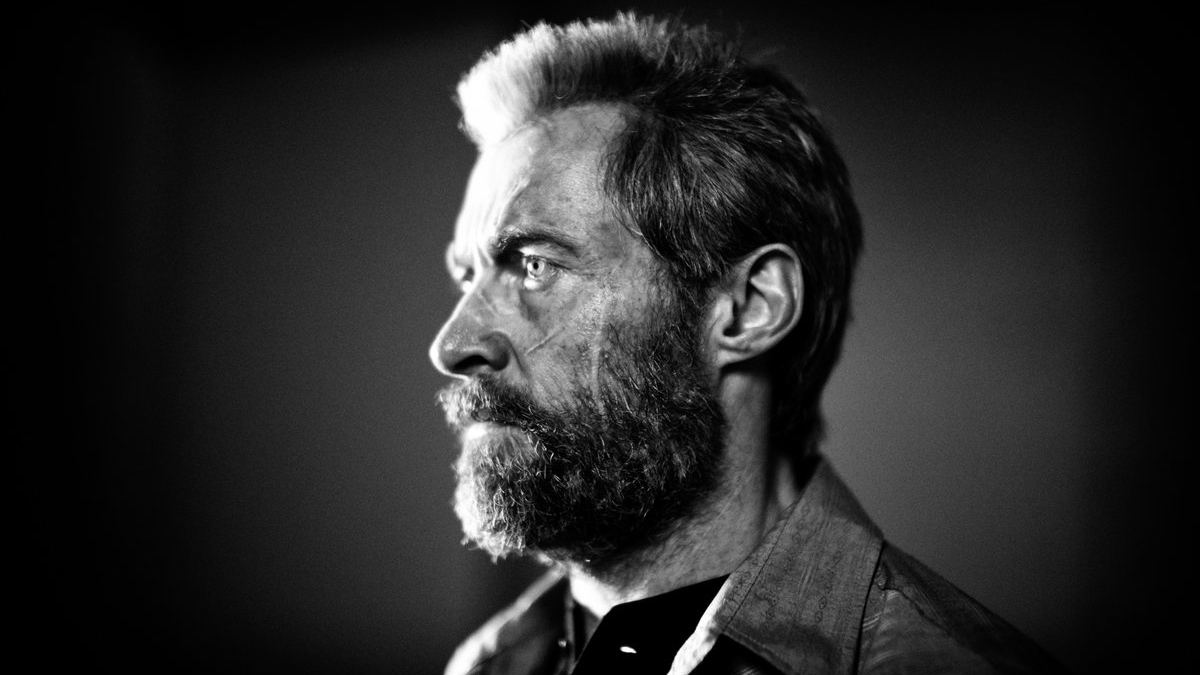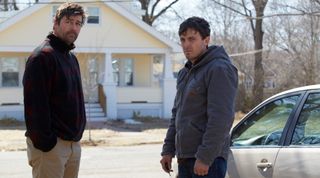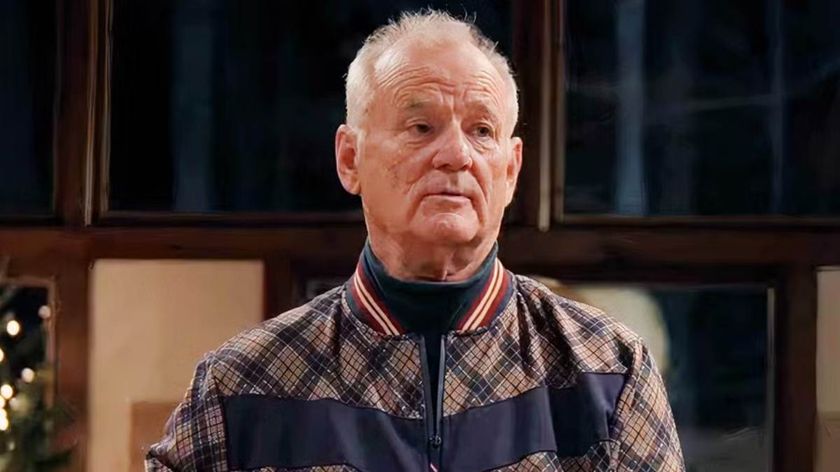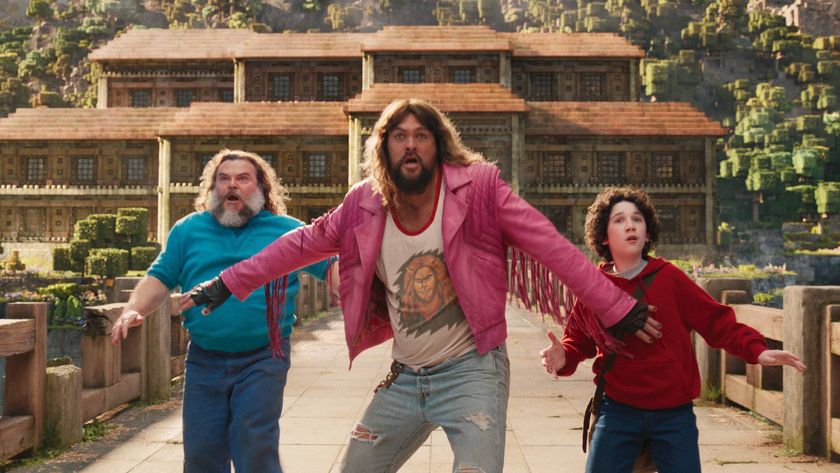Why watching tragic movies like Logan is actually good for you
The unexpected benefits of seeing something sad

On the surface, there’s something very peculiar about sad movies. Logan is the latest, greatest example - a story that follows the tragic and bloody end to a character who we’ve seen emerge, grow, and fade across the course of 15 cinematic years. While there are uplifting elements, the tone of the film is one of sadness and loss. So, why do we choose to willingly bring tragedy into our lives, especially when there’s enough of it in the real world to occupy our thoughts 24/7? It's about more than the fact it's one of our best movies of 2017. Logan’s parallels with the modern world’s current trajectory are too obvious to ignore, and the X-Men movies as a whole have always carried some kind of realistic, political message. It seems a little odd that we’d amplify our fears by watching a movie about them.
The idea that we’d choose to vicariously feel suffering for a couple of hours seems - initially at least - to run contrary to the happy, idealized lives we’re otherwise accustomed to pursuing. If it’s all about escapism, surely it’s better to watch a traditional Marvel movie or a romantic comedy to fill up our fantasy bucket of joy and temporarily feel like all’s right with the world? Well, no, actually. Watching a sad movie and exposing yourself to the emotions attached to it can be enormously uplifting, and have a far more positive effect on your life than burying your head in the frivolity of comedy or fantasy adventures.

“The ancient Greeks recognized that watching sad dramas (tragedies) can bring about emotional release or ‘catharsis’,” explains Dr Angela Byrne, a Clinical Psychologist. “Interestingly, a recent study (Dunbar et al., 2016) found that watching a sad film - Stuart: A Life Backwards - triggered an endorphin response and seemed to increase social bonding in their participants. In watching movies, we identify with the characters and their plight. It has the potential to promote insight and empathy to expose us to different perspectives.” In other words, sad movies reassure us - in a number of ways - that we’re not alone in our insecurities and imperfections. Even the best of us have hang-ups and darker moments, and it’s when we become conscious of these things that the best solution might be to reach for a problematic movie like Oscar-darling Manchester by the Sea, rather than a comedy.
“I also think they have mental health benefit beyond the individual,” continues Byrne. “The idea that emotional distress has been pathologized in our society, seen as a weakness, illness or simply a biochemical disturbance to be treated with medication. I feel that sad films have the potential to restore meaning and context to people's distress and contribute to resisting the medicalization of everyday life and emotions.” In the modern world happiness is a product, and we’re encouraged to buy it or leave the shop. Anyone who has seen the third season of Black Mirror on Netflix will be familiar with the strangely dystopian way that contentment is sold during a number of its episodes.
However, this idealized version of life isn’t healthy. “One aspect that especially concerns me is where films portray people as able to overcome all obstacles through sheer willpower,” says Byrne. “This can bolster the idea, so common in our culture now, that we can be anything we want. This obscures the social and political forces in our lives and can make people feel like failures when they can’t manage to transform their lives. I think that’s why films like I, Daniel Blake are so powerful but also controversial, because it challenges that idea and some people don’t want to accept the realism of it and the implications for our society.” In other words, it’s ok to fail and feel dark thoughts. The increasing prominence of superhero movies at our cinemas largely reinforce this high-achieving stereotype: we’re seeing movies about characters who are literally better, more perfect human beings than we could ever be. Even when these films present their characters with human flaws and conflicting emotions they’re still barely in touch with the reality of everyday life. It’s a token nod.

So, what are the benefits of getting in touch with our sadder sides? Letting movies move us? “I absolutely think that we need to expose ourselves to the full range of human experiences and emotions,” explains Åsa Jansson, a Historian specializing in the history of emotions and medicine, currently an associate at the University of London. “I think a lot of purely fictional sad films, whether dealing with romance or other emotional connections, are so attractive because they allow us to feel a sort of ‘safe’ sadness. We might call it escapism – films that let us feel sad, ‘have a good cry’, and perhaps feel reinvigorated afterwards, without placing any kind of demand for action upon us as viewers. These types of sad films, and the kind of sadness they elicit, fit well within a cultural framework that celebrates happiness as a life goal and personal choice, and where there is little room for ‘real’ sadness.” In order to become truly fulfilled in our lives, then, we need to feel the full range of emotions. In the same way that you can’t fully appreciate the genius of the Nolan Batman movies without seeing the diabolical Suicide Squad, so it’s difficult to appreciate genuine happiness without exposing yourself to tragedy. By allowing ourselves to be sad when watching movies we experience those emotions in a safe environment, in a channeled way, and put our personal negativity in context. Rogue One is probably the best example of safe sadness in recent times - a moving and very tragic movie set in the warm, comforting confines of the Star Wars universe.
However, the catch here is that the definition of tragedy or sadness changes not only culturally, but also over time. Sadness is a deeply personal thing, constructed from the personal choices we make and the environment in which we live. What appears innocent and uplifting for one group may be utterly abhorrent to another. “I think cultural attitudes and ideological frameworks can condition us to feel more or less empathy for some groups of people or types of events, which would also be reflected in what kinds of films are sad and moving to us,” says Jansson. “To feel empathy for someone is to recognize something of ourselves in them, to connect with their suffering on an emotional level, to feel with them, as it were. Prejudices generated by the socio-political contexts in which we exist and are familiar with often serve ideological and economic goals – perceiving some people as less human than ourselves, whether we do it consciously or not, makes us less likely to empathize with those people and consequently to defend their right not to be subjected to harm. An example of this would be, say, a white British person watching an American film with a ‘counter-terrorism’ storyline (like London Has Fallen) and connecting emotionally with the American characters (who are likely to be presented as ‘real’, complex human beings with a full range of emotions), while not feeling sad when several of the ‘bad guys’ are shot dead (the latter generally being presented as one-dimensional).”
Sign up for the Total Film Newsletter
Bringing all the latest movie news, features, and reviews to your inbox

Jansson continues to give a counter-point: “When the Oscar-nominated German film Downfall hit the big screen over a decade ago, some criticized it for portraying Adolf Hitler and other high-ranking Nazis as ‘too human’ – there were, for instance, several scenes where Hitler was acting with kindness and affection toward the people close to him. In regards to loss and death as timeless and universal tragedies, there is a scene in the film where Magda Goebbels poisons her children before she and her husband take their own lives. The way the scene where she murders her children is staged and played out makes it a profoundly sad scene, yet we might be reluctant to feel anything akin to sadness, or to admit that we do, in light of the atrocities committed by the Nazi state.” In this sense, sadness can force us to think about who we are and how we define ourselves in relation to other people. While it makes us potentially uncomfortable, and without the immediate pay-off of a traditional ‘tear jerker’, these kind of morally ambiguous moments of sadness can provide us with massive benefits in the long term. Just, er, maybe ignore the hundreds of Downfall parodies on YouTube to get the full effect.
If this all sounds a little wishy-washy, then let me close the feature by offering a more practical side to it all. Yes, sad movies make us feel better - so what? Surely the way that we choose to deal with our emotions is down to the individual, and a healthy mix of movie types, along with other media like TV, games, and books creates a balanced emotional framework for us to exist in. Sure, that’s the ideal but the notion of joyful emotional balance, which you see in movies like Love Actually and The Holiday, rarely reflects reality. Byrne highlights the impact of not acknowledging our negative emotions, and suggests how sad movies can help. “The suicide rate for men is a huge concern,” she says. “It’s the biggest killer of men under 45 in the UK. The ‘boys don’t cry’ message that men and boys are brought up with is really harmful. It makes it difficult for men to be vulnerable or to talk about how they’re feeling and seek help. Men are much less likely to come forward for counseling or psychological therapy than women. So, supporting men’s vulnerability and emotional expression is actually an important public health issue and sad films aimed at men could be really helpful in this regard.”
Sure, the gratuitous violence and superb performances in Logan might be reason enough to go see it… but the movie might offer deeper benefits you never knew you needed. And that’s perfectly ok.













